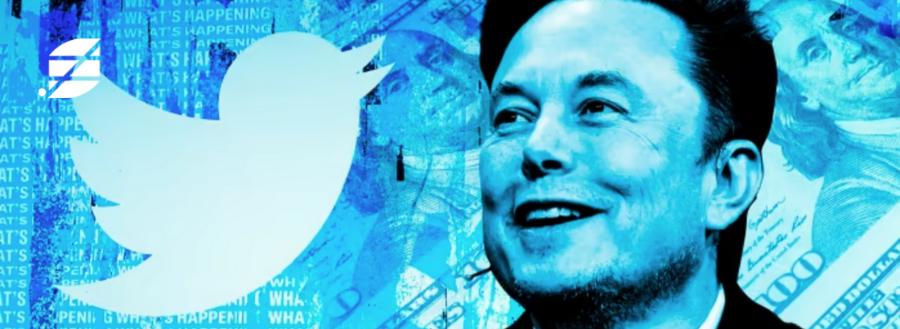
On Monday, Elon Musk struck a deal with Twitter to buy for about $44 billion, a deal that has the potential to expand the billionaire's business empire and put the world's richest man in charge of one of the world's most influential social networks.
Twitter agreed to sell to Musk at $54.20 per share, a 38 percent premium to the company's share price this month. Twitter's shares rose all day on Monday amid the growing likelihood of a deal with Elon Musk, and the company's shares rose 5.7 percent on Monday to close at $51.70 a share after the acquisition was announced. Musk will then become the company's single largest shareholder, which will be the largest deal to take the company private in nearly 20 years, according to data compiled by Dealogic.
Musk is both a high-profile Twitter user and a controversial user. Musk, who has more than 83 million followers on Twitter, has repeatedly said he wants to "reinvent" the platform by promoting free speech and giving users more control over what the social media platform displays. By taking the company private, Musk could do the business outside the prying eyes of investors, regulators and others.
Musk has repeatedly stressed in recent days that his goal is to support free speech on the platform and work to "unlock" Twitter's "extraordinary potential." Elon Musk said he has secured $46.5 billion in financing for the acquisition. The deal was unanimously approved by Twitter's board of directors and is expected to close this year.
Twitter Chairman Brett Taylor said in a statement that the board conducted a deliberate and comprehensive process to evaluate Musk's proposal and focus on value, certainty and financing. The proposed deal would result in a substantial cash premium, which is believed to be the best way forward for Twitter shareholders.
However, the review process can be quite intense. Former antitrust officials said on Monday that regulators may review Elon Musk's acquisition of Twitter, but are unlikely to sue to stop it.
Twitter isn't currently the world's largest social platform — it has more than 217 million daily users, while Facebook and Instagram have billions — but it has played a huge role in narratives around the world. Political leaders use it as a "voice", while companies, celebrities and other KOLs use it for image building and brand building.
Twitter has also been mired in controversy in recent years as some users spread misinformation and other unfavorable content on the platform. Since the riots in the Capitol on January 6 last year, former President Donald J. Bush has been killed in a car accident. Donald J. Trump has often turned to Twitter to insult and infuriate the platform. Twitter has repeatedly been forced to develop policies to deal with contingencies.
Still, some industry experts worry that Musk's desire for free speech on Twitter could mean canceling some of the platform's work to curb hate speech, misinformation, harassment and other harmful content. Others have questioned whether Musk will reinstate former President Donald Trump's account, a move that could have a major impact on the upcoming 2024 U.S. presidential election.
In addition to this, Twitter also faces questions about its business. For years, the company has struggled to win over new users and get people to continue using the service. As Twitter's main way of generating revenue, its advertising business has been volatile, having gone unprofitable for 8 of the past 10 years.
It's unclear how Musk plans to do it himself on Twitter, including who he will choose to lead the company in the future and how he will get involved in running the social platform business. In addition to running Tesla and SpaceX, Musk owns other companies, such as Neuralink, which aims to build computer interfaces for the human brain, and The Boring Company, which makes tunnels.
References:
https://www.cnn.com/2022/04/25/tech/elon-musk-twitter-sale-agreement/index.html
https://www.nytimes.com/live/2022/04/25/business/elon-musk-twitter